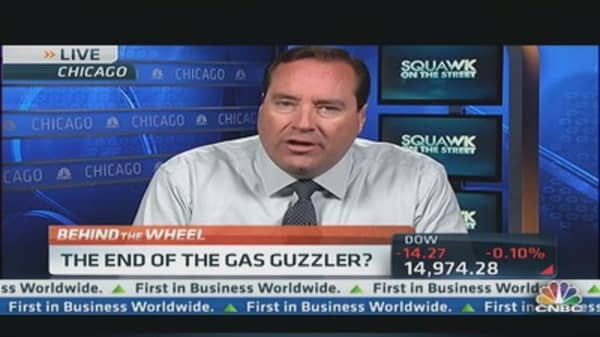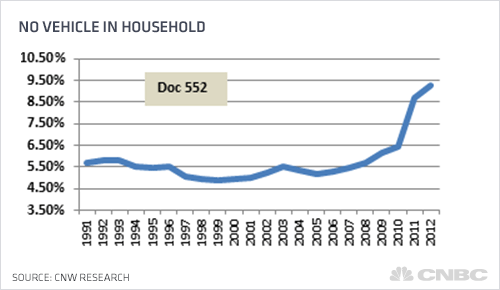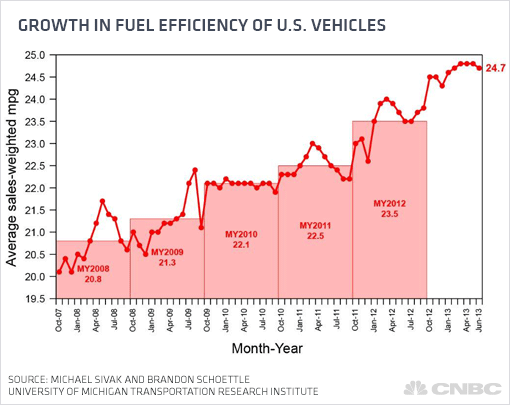A fundamental and dramatic shift is happening in America when it comes to our addiction to gasoline. We're slowly but steadily cutting back on our gas-guzzling ways. This doesn't mean we're going back to the days of the horse and buggy. But make no mistake: The amount of gasoline we consume is dropping, and the implications go well beyond the auto industry.
"We are seeing a modest sea change in America's gas consumption patterns," said Tom Kloza, chief oil analyst with GasBuddy.com. "There's not any one factor behind it, but several factors. I think we've seen the peak in U.S. gas consumption."
(Read More: Red, White and Blue: States Most Loyal to the Big 3)
For the record, that peak came in 2008. Since then, there has been a steady—though not huge—decline in the amount of gas used in America. Currently, gas consumption is down about 25 million gallons a day compared with last year.
So what's driving the change? Here are several factors






